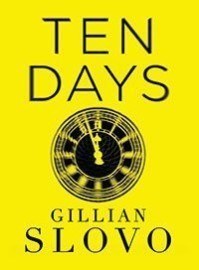
Ten Days
It’s 4 a.m. and Cathy Mason is watching dawn break over the Lovelace estate. By the end of the day, her community will be a crime scene. By the end of the week, her city will be on fire.
In this gripping thriller by Orange Prize-shortlisted author Gillian Slovo, ten unpredictable days of violence erupt from a stifling heatwave. And, as Westminster careers are being made or ruined, lives are at stake. Ten Days is about what happens when politics, policing and the hard realities of living in London collide.
Listen to extracts from the book by visiting Audible’s dedicated channel on Soundcloud.
About Gillian Slovo
Gillian Slovo is a playwright and the author of thirteen books, including five crime novels, the courtroom drama Red Dust, which was made into a feature film starring Hilary Swank and Chiwetel Ejiofor, and the Orange Prize-shortlisted Ice Road. She co-authored the play Guantanamo - Honor Bound to Defend Freedom, which was staged internationally. Her research for her play The Riots inspired Ten Days. Gillian Slovo was President of English PEN from 2010 to 2013 and is a fellow of the Royal Society of Literature. She was born in South Africa and lives in London.
More about the book

